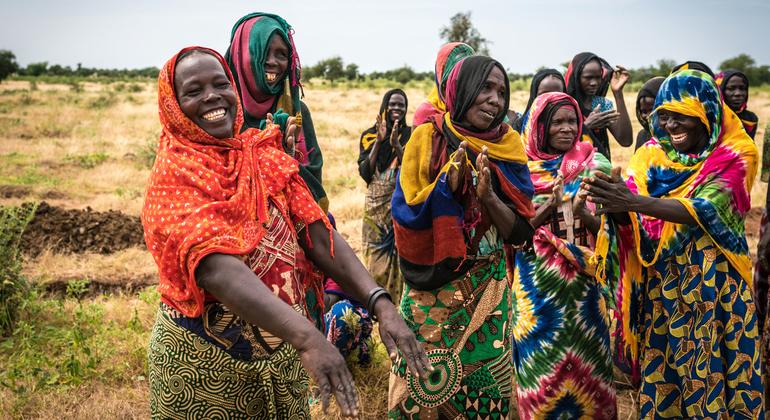The United Nations Convention to Combat Desertification is currently convening in Riyadh, Saudi Arabia, to address the urgent need to regenerate degraded lands around the world. This meeting comes at a crucial time when the consequences of land degradation, exacerbated by climate change and mismanagement, are becoming increasingly dire for communities and ecosystems globally.
Land degradation is a pressing issue that has far-reaching impacts on livelihoods, climate regulation, and biodiversity. As the land deteriorates, it not only threatens the food security and well-being of millions of people but also contributes to the acceleration of climate change and the loss of vital ecosystems.
The effects of land degradation are being felt by people in every corner of the world. From farmers struggling to grow crops on depleted soils to communities facing water scarcity due to deforestation and erosion, the consequences of degraded land are profound and widespread. In addition, the loss of biodiversity and ecosystems due to land degradation further exacerbates the vulnerability of communities to natural disasters and other environmental challenges.
The UN Convention to Combat Desertification is working to address these challenges by bringing together experts, policymakers, and stakeholders to discuss innovative solutions for restoring degraded lands and promoting sustainable land management practices. By sharing knowledge, best practices, and resources, the Convention aims to support countries in their efforts to combat land degradation and achieve the Sustainable Development Goals.
One of the key focus areas of the Convention is the restoration of degraded lands through reforestation, sustainable agriculture, and ecosystem restoration. By implementing these practices, countries can not only improve the productivity and resilience of their land but also enhance biodiversity, water availability, and climate regulation.
In addition to restoring degraded lands, the Convention also emphasizes the importance of sustainable land management practices to prevent further degradation. By promoting sustainable agriculture, responsible land use planning, and land rights for local communities, the Convention aims to address the root causes of land degradation and promote long-term resilience.
The impacts of land degradation are particularly severe in arid and semi-arid regions, where communities are already facing the challenges of water scarcity and climate variability. In these regions, restoring degraded lands is essential for securing livelihoods, protecting ecosystems, and building resilience to climate change.
In Chad, for example, the effects of land degradation are evident in the shrinking of Lake Chad, once one of the largest lakes in Africa. The loss of water in the lake has had devastating consequences for local communities who depend on the lake for fishing, agriculture, and water supply. By restoring degraded lands and promoting sustainable land management practices, countries like Chad can work towards reversing the effects of land degradation and building a more sustainable future for their people.
The UN Convention to Combat Desertification is working to support countries like Chad in their efforts to address land degradation and promote sustainable land management practices. By providing technical assistance, capacity building, and funding support, the Convention is helping countries to implement innovative solutions for restoring degraded lands and building resilience to climate change.
The international community has a critical role to play in supporting the efforts of the UN Convention to Combat Desertification. By raising awareness, mobilizing resources, and advocating for policies that promote sustainable land management, individuals and organizations can contribute to the global effort to combat land degradation and secure the future of our planet.
As the UN Convention to Combat Desertification meets in Riyadh, Saudi Arabia, it is clear that urgent action is needed to address the challenges of land degradation and promote sustainable land management practices. By working together, countries can restore degraded lands, protect biodiversity, and build resilience to climate change, ensuring a more sustainable future for all.









